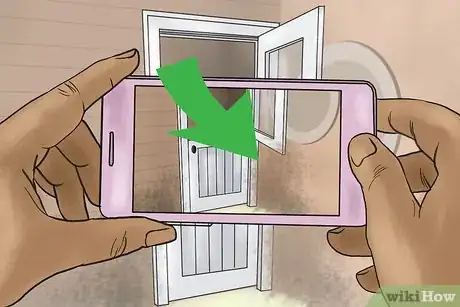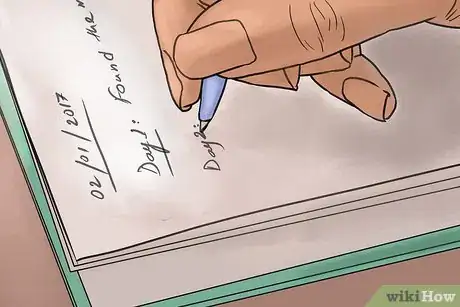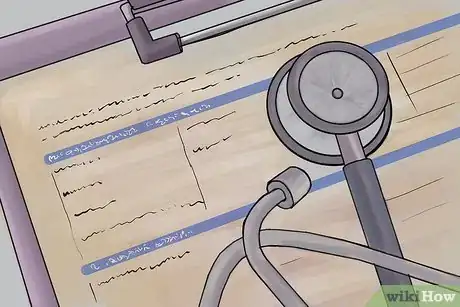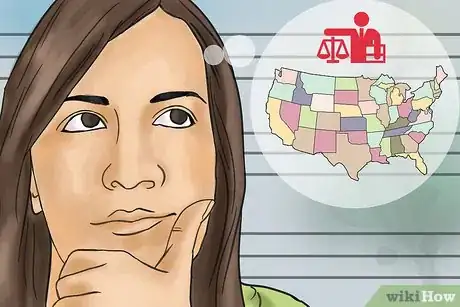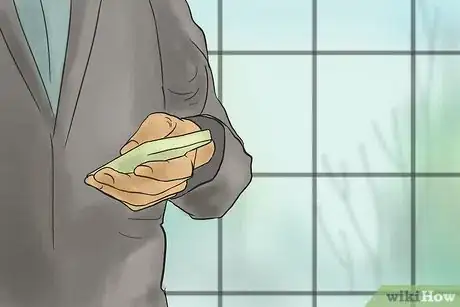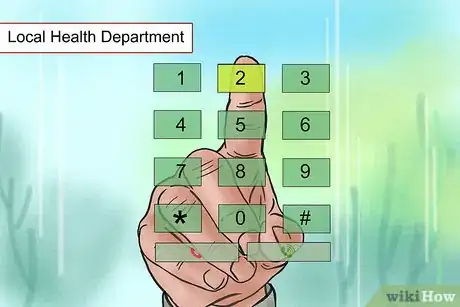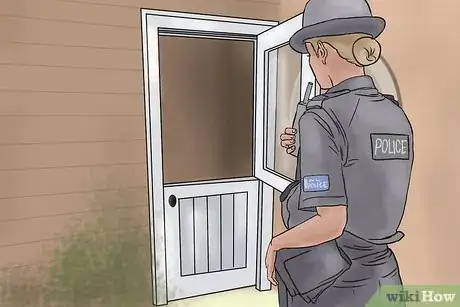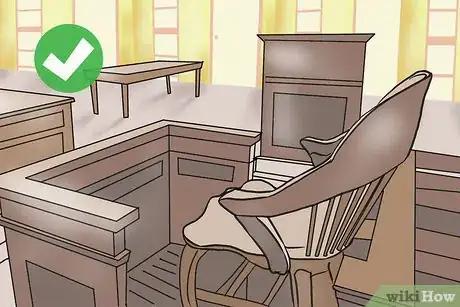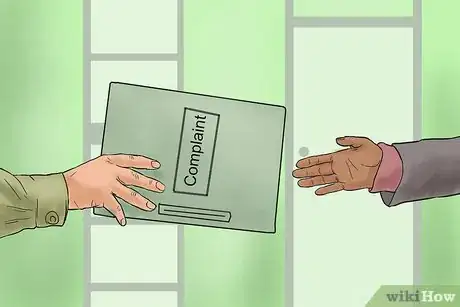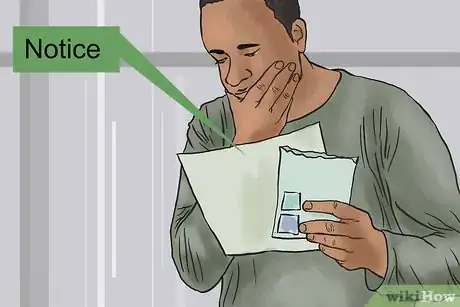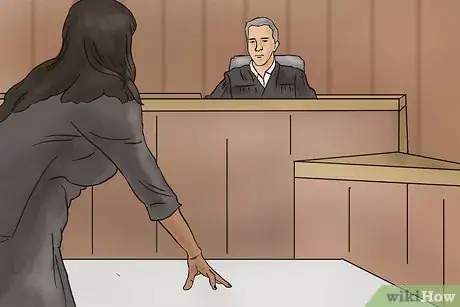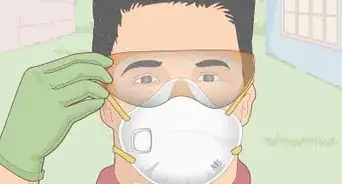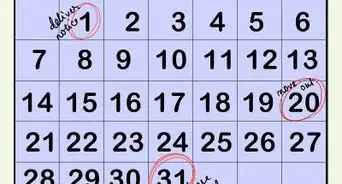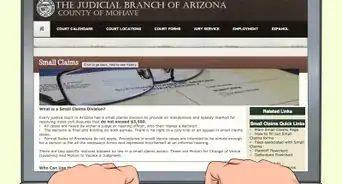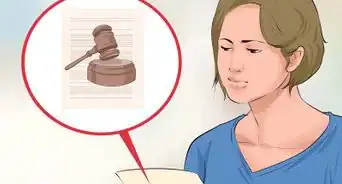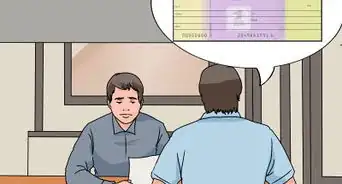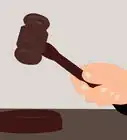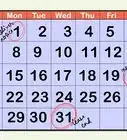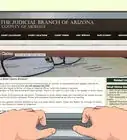This article was co-authored by Mike Kapur. Mike Kapur is a home inspector and the owner of Sonic Home Inspections, a home inspection company in Westchester, New York. With over 15 years of experience in pre-inspecting properties, Mike specializes in mold, radon, asbestos, lead, water, and air quality testing as well as hazardous materials, pest, infrared, and general home inspections. Prior to founding Sonic Home Inspections, Mike worked pre-inspecting apartments. Mike holds a BS in Accounting from Queens College and is a Certified Mold Assessor in the state of New York.
There are 14 references cited in this article, which can be found at the bottom of the page.
This article has been viewed 64,465 times.
Mold is a dangerous health hazard that can reduce your quality of life. If you find mold in your apartment, you should document the extent of the mold and ask your landlord to clean it up. Your landlord should also fix the underlying cause, such as a leaky roof or pipes. If your landlord won't fix the problem, you should consider your options, which may include suing your landlord in court. Because lawsuits are complicated, you should probably consult with an attorney.
Steps
Documenting the Mold
-
1Take pictures of the mold. Mold can grow in a variety of places. However, it usually grows in water-soaked areas, such as ceiling tiles and wall paneling. Molds come in different colors, like black, white, gray, or green.[1] It can be shiny or hard to see.[2] Once you find the mold, take color photographs.[3] You will want these photographs in case there is a court dispute.
- Remember to note the date and time you took the pictures.
- Some cameras or smart phones will stamp the date on the picture automatically. Make sure it is the correct date.
-
2Find the cause of the mold. It matters what causes the mold. For example, if you have caused the mold because of your behavior, then the landlord might not be legally required to fix it.[4] Look around to see if you can find the cause.
- Mold is caused by moisture, like from leaking roofs, windows, or pipes.[5] Your landlord should have fixed any leaks when notified.
- You might have caused the mold by maintaining high humidity or not keeping the apartment clean.
- It's okay if you can't identify the cause. Your landlord will need to clean the mold regardless.
Advertisement -
3Write down your observations. Document how long you have been aware of the mold, as well as how long the underlying cause has existed. Your own observations can be useful evidence in case you go to court.
- Also write down how the mold has made you feel. Are you tired? Stuffy? Having trouble breathing?
-
4Hold onto medical records. The mold might be causing medical problems, such as asthma or difficulty breathing. If so, you should visit a doctor and hold onto your medical records. These records will show that the mold has hurt your health. You may need to show them to your landlord.[6]
- You can also ask the doctor to write a letter identifying the likely cause for your health problems.[7] Make sure to tell your doctor about the mold.
Asking Your Landlord to Fix the Problem
-
1Research applicable laws. In the U.S., there is no federal law regulating mold in apartments. However, depending on where you live, there may be city or state laws.[8] You should research whether there is a law that applies.
- Search for state laws online. Type “your state” and “mold law” into your favorite search engine. You may also contact your state's Department of Health. Only a few states have laws against mold—Texas, Maryland, New Jersey, California, and Indiana.
- To find local ordinances, contact your city or county housing authority. For example, New York City's Department of Health has created guidelines on air quality indoors.
-
2Ask your landlord to fix the problem. Call them up and tell them the problem. Because your state might not have mold laws, you should identify the cause of the mold, such as a leaking pipe.[9] Ask your landlord to fix the problem.
- If your state or local government has mold laws, then also request that the mold be cleaned.
- If the landlord doesn't respond, then follow up with a written letter, restating your request.[10] Mail the letter certified mail, return receipt requested and hold onto the receipt.[11]
- Staple the receipt to your copy of the letter. It is important to keep copies of all communications in case you need to go to court.
-
3Call your local health department. You can find them by looking in your phone book for the number to call.[12] Report the problem and also tell them when you contacted your landlord.
- Remember that if your state doesn't have a mold law, you should instead complain about the underlying cause (e.g., a leaky roof).
- The department may send you a complaint form to fill out. Alternately, they could send a sanitation inspector out to document the problem.
-
4Report the problem to a housing inspector. Your city should have detailed housing codes your landlord must follow to make your apartment habitable. You should report any code violation to them. You can find the number in your phone book.[13]
- Only mention mold if your local law actually has a law regarding mold. If not, then simply mention the underlying problem that is causing the mold, such as the leaky roof.
- For example, you could say, “Hi. I want to report a roof that leaks at my apartment building. My address is….I wrote my landlord two weeks ago but nothing has happened. Can you send someone out to investigate?”
- You may have to call several times. It may be difficult to get someone to come out and look at the problem. Stay persistent.
- The housing authority can fine your landlord, which should create an incentive for them to fix the mold problem. However, your landlord could refuse to pay the fine.
-
5Consider your options if your landlord doesn't fix the problem. Your options will depend on where you live. However, you generally will be able to take any of the following actions:[14]
- Sue your landlord. You can bring a lawsuit to force your landlord to clean the mold and fix the underlying problem. Alternately, you could ask the court to give you money to compensate for the injuries you have suffered.
- Withhold your rent. Depending on where you live, you may be able to stop paying rent, which will create an incentive for your landlord to finally fix the problem. You may have to provide a letter to your landlord explaining why you are withholding rent.
- Fix the problem and deduct the cost from your rent. If you hire someone to clean up the mold, you can deduct the amount from any rent payment. For example, it might cost $500 to clean up the mold. If your rent is $750, you can pay only $250.
- Move out. Depending on the severity of the mold, you might be able to break your lease and leave. Your landlord might sue you, but you can use the mold as justification for leaving by claiming you have been “constructively evicted.”
Suing Your Landlord
-
1Find a lawyer. Lawsuits are complicated, and you will benefit from hiring a lawyer. If you don't have much money, then you might be able to find legal aid or other low-cost legal help. Find a lawyer in the following places:
- Your city or state's bar association might have a referral program.
- Low-income people can find legal aid at the Legal Services Corporation's website: http://www.lsc.gov. Type in your address. You generally will qualify for legal aid if your income is 125% of the federal poverty level.
- Self-help legal centers. Some courts have self-help centers or staff on hand who can answer questions about suing a landlord. Ask the court clerk.
-
2Locate the correct court. Typically, you will sue your landlord in the county where the apartment building is located or in the county where the landlord resides. You can find this court by looking in the phone book for your county.
- Some cities might have specialized Housing Courts. New York City does.[15] Look at your county court's website to see if there is a specialized housing court.
-
3Draft a complaint. A complaint describes the dispute between you and your landlord. Check with your court to see if there are printed, “fill in the blank” complaint forms you can use. Also check the court's website for a form.
- If there isn't a form, you can have your lawyer draft a complaint for you. The complaint should identify you and the landlord and go into detail about the problem.
- You also have to ask the court for something if you win. For example, you might sue for money compensation. Or you could request that the judge order your landlord to clean the mold.
-
4File the complaint. Make a copy for your records and a few additional copies. Take your original and the copies to the court clerk. Ask to file. The clerk should stamp the filing date on your copies.
- You probably must pay a filing fee. Call ahead of time to check the amount of the fee and acceptable methods of payment.
- Ask for a fee waiver if you are low income.[16]
-
5Serve your landlord notice of the lawsuit. Your landlord has a right to respond to your lawsuit, so they need notice that you are suing them. Generally, you can provide this notice by sending a copy of your complaint to them. Depending on your court, you may need to send other documents, such as a “summons.” Ask the clerk for everything.
- Acceptable methods of service will depend on the court. Usually, you can have someone 18 or older hand deliver the paperwork on your landlord, so long as they are not a party to the lawsuit. You cannot make service yourself.[17]
- Alternately, you could pay the local sheriff or a private process server a small fee to make hand delivery.
- In some courts, you may also be able to send the paperwork using first-class mail.
-
6Read your landlord's response. Your landlord will send you a copy of any response they file. Often, a landlord will claim they don't have a legal duty to clean the mold, or they might claim you never notified them of the problem. You should read the response carefully.
- Your landlord might also suggest mediation to resolve the dispute. In mediation, a neutral third party (the mediator) listens to each side describe the dispute. They then try to guide each side toward a compromise they both can live with.[18]
-
7Continue with the lawsuit. The substance of your lawsuit will depend on where you live. If you live in an area with mold laws, then you can sue on the grounds that the present condition of your apartment violates the law. The court might order your landlord to clean up the mold.
- If your location does not have a mold law, you will argue that the apartment isn't “habitable” and ask for compensation for your injuries (including medical injuries). If you win, the court might award you a sum of money, which you can use to clean the mold.
- Evidence will be key. By the time you file your lawsuit, you should have the mold problem well documented with pictures, medical records, government inspection reports, and copies of your communications with your landlord.
Expert Q&A
Did you know you can get expert answers for this article?
Unlock expert answers by supporting wikiHow
-
QuestionWhat can I use to clean up the mold myself?
 Mike KapurMike Kapur is a home inspector and the owner of Sonic Home Inspections, a home inspection company in Westchester, New York. With over 15 years of experience in pre-inspecting properties, Mike specializes in mold, radon, asbestos, lead, water, and air quality testing as well as hazardous materials, pest, infrared, and general home inspections. Prior to founding Sonic Home Inspections, Mike worked pre-inspecting apartments. Mike holds a BS in Accounting from Queens College and is a Certified Mold Assessor in the state of New York.
Mike KapurMike Kapur is a home inspector and the owner of Sonic Home Inspections, a home inspection company in Westchester, New York. With over 15 years of experience in pre-inspecting properties, Mike specializes in mold, radon, asbestos, lead, water, and air quality testing as well as hazardous materials, pest, infrared, and general home inspections. Prior to founding Sonic Home Inspections, Mike worked pre-inspecting apartments. Mike holds a BS in Accounting from Queens College and is a Certified Mold Assessor in the state of New York.
Certified Mold Assessor & Home Inspector, Sonic Home Inspections
-
QuestionI received a 3 day notice from a person that I don't know and did not rent from. What should I do?
 Donald TepperCommunity AnswerI'd suggest calling the person or company and informing them that you received the notice in error because you don't rent a property from them. Follow up with a letter and sent it certified mail, again, stating that you don't rent a property from them. Keep a copy of the letter and the certified mail receipt. The letter either was sent to you by mistake, in which case the right thing to do is to notify the sender, or it's the first step in a scam. Do not send them any money. If they persist, consult a lawyer.
Donald TepperCommunity AnswerI'd suggest calling the person or company and informing them that you received the notice in error because you don't rent a property from them. Follow up with a letter and sent it certified mail, again, stating that you don't rent a property from them. Keep a copy of the letter and the certified mail receipt. The letter either was sent to you by mistake, in which case the right thing to do is to notify the sender, or it's the first step in a scam. Do not send them any money. If they persist, consult a lawyer. -
QuestionWhat do I do if I confront my landlord to fix a mold problem, but the landlord says it's not his problem?
 Community AnswerThe mold is his problem; the landlord has to fix all major/life-threatening repairs. If he doesn't fix the mold problem, then you can report him to Housing and Urban Development (HUD).
Community AnswerThe mold is his problem; the landlord has to fix all major/life-threatening repairs. If he doesn't fix the mold problem, then you can report him to Housing and Urban Development (HUD).
References
- ↑ Mike Kapur. Certified Mold Assessor & Home Inspector, Sonic Home Inspections. Expert Interview. 19 August 2020.
- ↑ https://www.nolo.com/legal-encyclopedia/mold-rentals-landlord-liability-responsibility-prevention-30230.html
- ↑ http://www.michigan.gov/documents/mdch/MOLD__RENTERS_MDCH_320757_7.pdf
- ↑ https://www.nolo.com/legal-encyclopedia/mold-rentals-landlord-liability-responsibility-prevention-30230.html
- ↑ Mike Kapur. Certified Mold Assessor & Home Inspector, Sonic Home Inspections. Expert Interview. 19 August 2020.
- ↑ http://ptla.org/rights-tenants-unsafe-or-unfit-housing#mold
- ↑ http://www.michigan.gov/documents/mdch/MOLD__RENTERS_MDCH_320757_7.pdf
- ↑ https://www.nolo.com/legal-encyclopedia/mold-rentals-landlord-liability-responsibility-prevention-30230.html
- ↑ http://www.michigan.gov/documents/mdch/MOLD__RENTERS_MDCH_320757_7.pdf
- ↑ http://ptla.org/rights-tenants-unsafe-or-unfit-housing#steps
- ↑ http://metcouncilonhousing.org/help_and_answers/mold
- ↑ http://www.michigan.gov/documents/mdch/MOLD__RENTERS_MDCH_320757_7.pdf
- ↑ http://www.michigan.gov/documents/mdch/MOLD__RENTERS_MDCH_320757_7.pdf
- ↑ http://www.masslegalhelp.org/options-if-your-landlord-refuses-to-make-repairs
- ↑ http://metcouncilonhousing.org/help_and_answers/mold
- ↑ http://metcouncilonhousing.org/help_and_answers/how_to_get_repairs
- ↑ http://www.courts.ca.gov/selfhelp-serving.htm
- ↑ http://adr.findlaw.com/mediation/what-is-mediation-.html
- ↑ https://www.nolo.com/legal-encyclopedia/mold-rentals-landlord-liability-responsibility-prevention-30230.html
